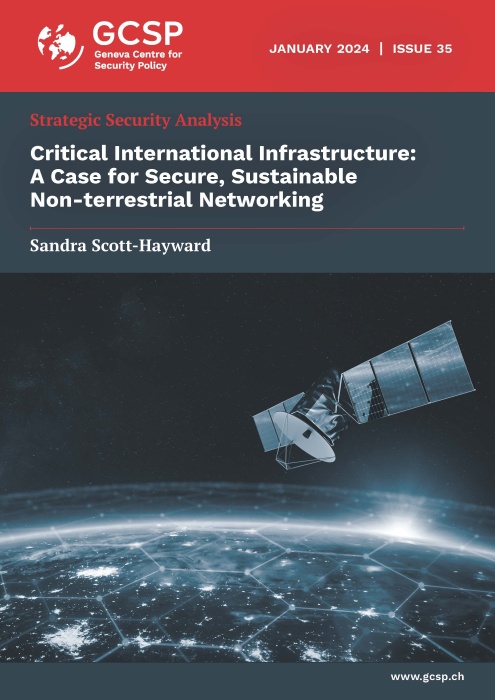Critical International Infrastructure: A Case for Secure, Sustainable Non-terrestrial Networking
18 January 2024
Key points
- It is anticipated that by 2030, low-latency (low Earth orbit satellite-based) Internet will be carrying many terabits per second, eclipsing traditional geostationary communications. Rather than replacing the well-connected, fibre-to-the-home infrastructure available in urban environments, satellite communication will target mobile, rural, and rapid start-up communication.
- To facilitate the global Internet, the growth of “disposable” space infrastructure and the vast volume of space debris is somewhat at odds with the terrestrial UN Sustainable Development Goals.
- In recent years, Space has been recognised as a “critical national infrastructure” sector, with the designation of satellite constellations as critical space infrastructure.
- Compared with the maturity of government and military space standards, the process of ensuring the security of commercial satellite operations is in its infancy.
- Machine learning and artificial intelligence (AI) techniques are fundamental to the successful deployment of satellite mega-constellations, commercial satellite operations and space-air-ground integrated networks. The security of their implementation is paramount.
- The UN High-Level Advisory Body on Artificial Intelligence should include this critical international infrastructure in its recommendations for the international governance of AI.
About this publication
This publication is part of a special series of Strategic Security Analysis under the Polymath Initiative supported by the Didier and Martine Primat Foundation. For more information, please visit the Polymath Initiative website: https://www.gcsp.ch/the-polymath-initiative


